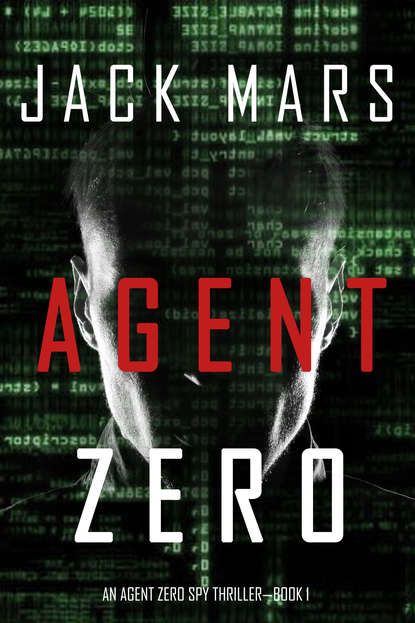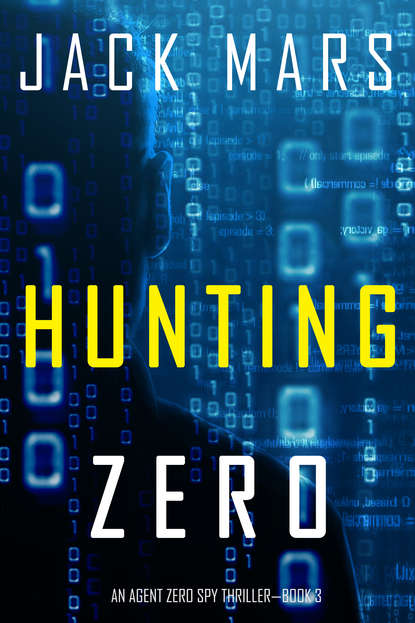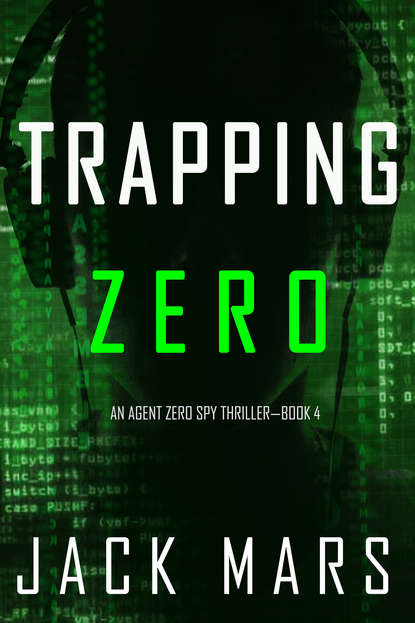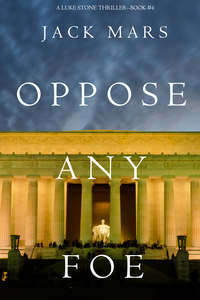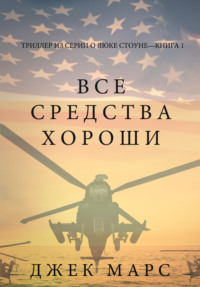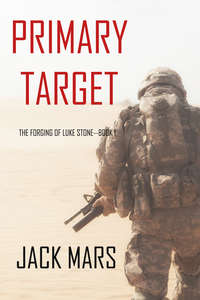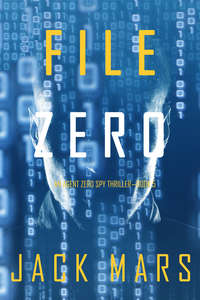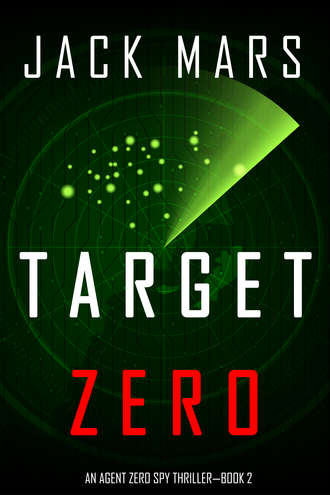
Полная версия
Target Zero
He was worried about her, but he tried not to let on. Instead he grabbed a slice of the sausage-and-pepper pie. It was halfway to his mouth when Maya intervened, snatching it out of his hand.
“What do you think you’re doing?” she demanded.
“…Eating? Or trying to.”
“Um, no. You have a date, remember?”
“What? No, that’s tomorrow…” He trailed off, uncertain. “Oh, god, that is tonight, isn’t it?” He nearly smacked himself in the forehead.
“Sure is,” said Maya around a mouthful of pizza.
“Also, it’s not a date. It’s dinner with a friend.”
Maya shrugged. “Fine. But if you don’t go get ready, you’re going to be late for ‘dinner with a friend.’”
He looked at his watch. She was right; he was supposed to meet Maria at five.
“Go, shoo. Get changed.” She ushered him out of the kitchen and he hurried upstairs.
With everything going on and his continual attempts to elude his own thoughts, he’d nearly forgotten about the promise to meet with Maria. There had been several half-baked attempts to get together over the past four weeks, always with something getting in the way on one end or another—though, if he was being honest with himself, it was usually his end that made the excuses. Maria had seemed to finally grow tired of it and not only planned the outing, but chose a spot halfway between Alexandria and Baltimore, where she lived, if he would promise to see her.
He did miss her. He missed being around her. They weren’t just partners in the agency; there was a history there, but Reid couldn’t remember most of it. Barely any, in fact. All he knew was that when he was around her, there was a distinct feeling that he was in the company of someone who cared for him—a friend, someone he could trust, and perhaps even more than that.
He went into his closet and pulled out an ensemble he thought would work for the occasion. He was a fan of a classic style, though he was aware that his wardrobe probably dated him by at least a decade. He pulled on a pair of pleated khakis, a plaid button-down, and a tweed jacket with leather patches at the elbows.
“Is that what you’re wearing?” Maya asked, startling him. She was leaning against the door frame to his bedroom, munching casually on a pizza crust.
“What’s wrong with it?”
“What’s wrong with it is that you look like you just stepped out of a classroom. Come on.” She took him by the arm back to the closet and began rooting through his clothes. “Jeez, Dad, you dress like you’re eighty…”
“What was that?”
“Nothing!” she called back. “Ah. Here.” She pulled out a black sport coat—the only one he owned. “Wear this, with something gray under it. Or white. A T-shirt or a polo. Get rid of the dad-pants and put on some jeans. Dark ones. Slim fit.”
At the behest of his daughter, he changed his outfit while she waited in the hall. He supposed he should get used to this bizarre role reversal, he thought. One moment he was the overprotective father; the next he was caving in the face of his challenging, astute daughter.
“Much better,” Maya said as he presented himself anew. “You almost look like you’re ready for a date.”
“Thank you,” he said, “and this isn’t a date.”
“You keep saying that. But you’re going for dinner and drinks with a mysterious woman that you claim is an old friend, even though you’ve never mentioned her and we’ve never met her…”
“She is an old friend—”
“And, I might add,” Maya said over him, “she’s quite attractive. We saw her get off the plane in Dulles. So if either of you are looking for something more than ‘old friends,’ this is a date.”
“Good god, you and I are not talking about that.” Reid winced. But in his mind, he was panicking slightly. She’s right. This is a date. He had been doing so many mental gymnastics lately that he hadn’t paused long enough to consider what “dinner and drinks” really meant to a pair of single adults. “Fine,” he admitted, “let’s just say it’s a date. Um… what do I do?”
“You’re asking me? I’m not exactly an expert.” Maya grinned. “Talk to her. Get to know her better. And please, try your best to be interesting.”
Reid scoffed and shook his head. “Excuse me, but I am plenty interesting. How many people do you know that can give an entire oral history of the Bulavin Rebellion?”
“Only one.” Maya rolled her eyes. “And do not give this woman an entire oral history of the Bulavin Rebellion.”
Reid chuckled and hugged his daughter.
“You’ll be fine,” she assured him.
“You will too,” he said. “I’m going to call Mr. Thompson to come by for a while…”
“Dad, no!” Maya pulled away from his embrace. “Come on. I’m sixteen. I can watch Sara for a couple of hours.”
“Maya, you know how important it is to me that you two aren’t alone—”
“Dad, he smells like motor oil, and all he wants to talk about is ‘the good ol’ days’ with the Marines,” she said exasperatedly. “Nothing is going to happen. We’re going to eat pizza and watch a movie. Sara will be in bed before you’re back. We’ll be fine.”
“I still think that Mr. Thompson should come—”
“He can spy through the window like he usually does. We’ll be okay. I promise. We have a great security system, and deadbolts on all the doors, and I know about the gun near the front door—”
“Maya!” Reid exclaimed. How did she know about that? “Do not mess with that, do you understand?”
“I’m not going to touch it,” she said. “I’m just saying. I know it’s there. Please. Let me prove I can do this.”
Reid didn’t like the idea of the girls being alone in the house, not at all, but she was practically begging. “Tell me the escape plan,” he said.
“The whole thing?!” she protested.
“The whole thing.”
“Fine.” She flipped her hair over a shoulder, as she often did when she was annoyed. Her eyes rolled to the ceiling as she recited, monotone, the plan that Reid had enacted shortly upon their arrival in the new house. “If anyone comes to the front door, I should first make sure the alarm is armed, and the deadbolt and chain lock are on. Then I check the peephole to see if it’s someone I know. If it’s not, I call Mr. Thompson and have him investigate first.”
“And if it is?” he prompted.
“If it’s someone I know,” Maya rattled on, “I check the side window—carefully—to see if there is anyone else with them. If there is, I call Mr. Thompson to come over and investigate.”
“And if someone tries to force their way in?”
“Then we get down to the basement and go into the exercise room,” she recited. One of the first renovations Reid had made, upon moving in, was to have the door to the small room in the basement replaced with one with a steel core. It had three heavy deadbolts and aluminum alloy hinges. It was bulletproof and fireproof, and the CIA tech that had installed it claimed it would take a dozen SWAT battering rams to knock it down. It effectively turned the small exercise room into a makeshift panic room.
“And then?” he asked.
“We call Mr. Thompson first,” she said. “And then nine-one-one. If we forget our cell phones or can’t get to them, there’s a landline in the basement preprogrammed with his number.”
“And if someone breaks in, and you can’t get to the basement?”
“Then we go to the nearest available exit,” Maya droned. “Once outside, we make as much noise as possible.”
Thompson was a lot of things, but hard of hearing was not one of them. One night Reid and the girls had the TV on too loud while watching an action movie, and Thompson came running at the sound of what he thought might have been suppressed gunshots.
“But we should always have our phones with us, in case we need to make a call once we’re somewhere safe.”
Reid nodded approvingly. She had recited the entire plan—except one small, yet crucial, part. “You forgot something.”
“No, I didn’t.” She frowned.
“Once you’re somewhere safe, and after you call Thompson and the authorities…?”
“Oh, right. Then we call you right away and let you know what’s happened.”
“Okay.”
“Okay?” Maya raised an eyebrow. “Okay as in, you’ll let us be on our own for once?”
He still didn’t like it. But it was only for a couple of hours, and Thompson would be right next door. “Yes,” he said finally.
Maya breathed a sigh of relief. “Thank you. We’ll be fine, I swear it.” She hugged him again, briefly. She turned to head back downstairs, but then thought of something else. “Can I get away with just one more question?”
“Sure. But I can’t promise I’ll tell you the answer.”
“Are you going to start… traveling, again?”
“Oh.” Once again her question took him by surprise. The CIA had offered him his job back—in fact, the Director of National Intelligence himself had demanded that Kent Steele be fully reinstated—but Reid hadn’t yet given them an answer, and the agency hadn’t yet demanded one of him. Most days he avoided thinking about it altogether.
“I… would really like to say no. But the truth is that I don’t know. I haven’t quite made up my mind.” He paused a moment before asking, “What would you think if I did?”
“You want my opinion?” she asked in surprise.
“Yes, I do. You’re honestly one of the smartest people I know, and your opinion matters a lot to me.”
“I mean… on the one hand, it’s pretty cool, knowing what I know now—”
“Knowing what you think you know,” Reid corrected.
“But it’s also pretty scary. I know there’s a very real chance that you could get hurt, or… or worse.” Maya was quiet for a while. “Do you like it? Working for them?”
Reid didn’t answer her directly. She was right; the ordeal that he’d been through had been terrifying, and had threatened his life more than once, as well as the lives of both his girls. He couldn’t bear it if anything happened to them. But the hard truth—and one of the bigger reasons why he kept himself so busy lately—was that he did enjoy it, and he did miss it. Kent Steele longed for the chase. There was a time, when all this started, that he acknowledged that part of him as if it were a different person, but that wasn’t true. Kent Steele was an alias. He longed for it. He missed it. It was a part of him, just as much as teaching and raising two girls. Though his memories were fuzzy, it was a part of his greater self, his identity, and not having it was like a sports star suffering a career-ending injury: it brought with it the question, Who am I, if I’m not that?
He didn’t have to answer her question aloud. Maya could see it in his thousand-yard gaze.
“What’s her name again?” she asked suddenly, changing the subject.
Reid smiled sheepishly. “Maria.”
“Maria,” she said thoughtfully. “All right. Enjoy your date.” Maya headed downstairs.
Before following, Reid had a minor afterthought. He opened the top dresser drawer and rummaged around in the rear of it until he found what he was looking for—an old bottle of expensive cologne, one he hadn’t worn in two years. It had been Kate’s favorite. He sniffed the diffuser and felt a chill run down his spine. It was a familiar, musky scent that carried with it a flood of good memories.
He spritzed some on his wrist and dabbed each side of his neck. The scent was stronger than he remembered, but pleasant.
Then—another memory flashed across his vision.
The kitchen in Virginia. Kate is angry, gesturing at something on the table. Not just angry—she’s frightened. “Why do you have this, Reid?” she asks accusingly. “What if one of the girls had found it? Answer me!”
He shook the vision loose before the inevitable migraine came on, but it didn’t make the experience any less disturbing. He couldn’t recall when or why that argument had happened; he and Kate had rarely argued, and in the memory, she looked scared—either scared of whatever they were arguing about, or possibly even scared of him. He had never given her a reason to be. At least not that he could remember…
His hands shook as a new realization struck him. He couldn’t recall the memory, which meant that it might have been one that was suppressed by the implant. But why would any memories of Kate have been erased with Agent Zero?
“Dad!” Maya called from the bottom of the stairs. “You’re going to be late!”
“Yeah,” he muttered. “Coming.” He would have to face the reality that either he sought a solution to his problem, or that the occasional resurfacing memories would continuously struggle forth, confusing and jarring.
But he would face that reality later. Right now he had a promise to keep.
He went downstairs, kissed each of his daughters on the top of their head, and headed out to the car. Before making his way down the walkway, he made sure that Maya set the alarm after him, and then he climbed into the silver SUV he’d bought just a couple weeks earlier.
Even though he was very nervous and certainly excited about seeing Maria again, he still couldn’t shake the tight ball of dread in his stomach. He couldn’t help but feel that leaving the girls alone, even for a short time, was a very bad idea. If the events of the previous month had taught him anything, it was first and foremost that there was no shortage of threats that wanted to see him suffer.
CHAPTER THREE
“How are you feeling tonight, sir?” the overnight nurse asked politely as she entered his hospital room. Her name was Elena, he knew, and she was Swiss, though she spoke to him in accented English. She was petite and young, most would say pretty, even, and quite cheerful.
Rais said nothing in response. He never did. He merely stared as she set a Styrofoam cup on his bedside table and set about carefully inspecting his wounds. He knew that her cheerfulness was overcompensation for her fear. He knew that she did not like being in the room with him, despite the pair of armed guards behind her, watching his every move. She did not like treating him, or even speaking to him.
No one did.
The nurse, Elena, inspected his wounds cautiously. He could tell she was nervous being that close to him. They knew what he had done; that he had killed in the name of Amun.
They would be a lot more afraid if they knew how many, he thought wryly.
“You’re healing nicely,” she told him. “Faster than expected.” She told him that every night, which he took as code to mean “hopefully you’ll leave here soon.”
That was not good news for Rais, because when he was finally well enough to leave he would likely be sent to a dank, horrible hole in the ground, some CIA black site in the desert, to sustain more wounds while they tortured him for information.
As Amun, we endure. That had been his mantra for more than a decade of his life, but that was no longer the case. Amun was no more, as far as Rais knew; its plot in Davos had failed, its leaders had been either detained or killed, and every law enforcement agency in the world knew about the brand, the glyph of Amun that its members burned into their skin. Rais was not allowed to watch television, but he got his news from his armed police guards, who talked often (and at great length, often to Rais’s annoyance).
He himself had sliced the brand from his skin before being taken to the hospital in Sion, but it ended up being for naught; they knew who he was and at least some of what he had done. Even so, the jagged, mottled pink scar where the brand had once been on his arm was a daily reminder that Amun was no more, and so it only seemed fitting that his mantra change.
I endure.
Elena took the Styrofoam cup, filled with ice water and a straw. “Would you like something to drink?”
Rais said nothing, but he leaned forward slightly and parted his lips. She guided the straw toward him cautiously, her arms fully extended and locked at the elbows, her body reclined back on an angle. She was afraid; four days earlier Rais had tried to bite Dr. Gerber. His teeth had scraped the doctor’s neck, not even broken the skin, but still it warranted a crack across the jaw from one of his guards.
Rais did not try anything this time. He took long, slow sips through the straw, enjoying the girl’s fear and the tight anxiousness of the two police officers who watched behind her. When he’d had his fill, he leaned back again. She audibly sighed with relief.
I endure.
He had endured quite a bit in the past four weeks. He had endured a nephrectomy to remove his punctured kidney. He had endured a second surgery to extract a portion of his lacerated liver. He had endured a third procedure to ensure that none of his other vital organs had been damaged. He had endured several days in the ICU before being moved to a medical-surgical unit, but he never left the bed to which he was shackled by both wrists. The nurses turned him and changed his bedpan and kept him as comfortable as they were able, but he was never allowed to rise, to stand, to move around of his own volition.
The seven stab wounds in his back and one in his chest had been sutured and, as the night nurse Elena continuously reminded him, were healing well. Still, there was little the doctors could do about the nerve damage. Sometimes his entire back would go numb, up to his shoulders and occasionally even down his biceps. He would feel nothing, as if those parts of his body belonged to another.
Other times he would wake from a solid sleep with a scream in his throat as searing pain ripped through him like an angry lightning storm. It never lasted long, but it was acute, intense, and came irregularly. The doctors called them “stingers,” a side effect sometimes seen in those with nerve damage as extensive as his. They assured him that these stingers often faded and stopped entirely, but they could not say when that would happen. Instead they told him he was lucky there was no damage to his spinal cord. They told him he was lucky to have survived his wounds at all.
Yes, lucky, he thought bitterly. Lucky that he was recovering only to be thrust into the waiting arms of a CIA black site. Lucky to have had everything he worked for torn away in the course of a single day. Lucky to have been bested not once, but twice by Kent Steele, a man whom he hated, loathed, with every possible fiber of his being.
I endure.
Before leaving his room, Elena thanked the two officers in German and promised to bring them coffee when she returned later. Once she was gone, they resumed their post just outside his door, which was always open, and resumed their conversation, something about a recent football match. Rais was fairly well-versed in German, but the particulars of the Swiss-German dialect and the speed with which they spoke eluded him at times. The day-shift officers often conversed in English, which was how he got much of his news about the goings-on outside his hospital room.
Both men were members of the Swiss Federal Office of Police, which mandated that he have two guards on his room at all times, twenty-four hours a day. They rotated in eight-hour shifts, with an entirely different set of guards on Fridays and the weekend. There were always two, always; if one officer had to use the restroom or get something to eat, they would first have to call down to have one of the hospital’s security guards sent to them, and then wait for their arrival. Most patients in his condition and this far along in their recovery would likely have been transferred to a lower-level trauma center, but Rais had remained in the hospital. It was a more secure facility, with its locked units and armed guards.
There were always two. Always. And Rais had determined that it could work to his advantage.
He had had a lot of time to plan his escape, especially in the last several days, when his medication levels were decreased and he could think lucidly. He ran through several scenarios in his head, over and over. He memorized schedules and eavesdropped on conversations. It would not be long before they discharged him—a matter of days, at most.
He had to act, and he decided he would do it tonight.
His guards had grown complacent over the weeks posted outside his door. They called him “terrorist,” and they knew he was a killer, but besides the minor incident with Dr. Gerber a few days prior, Rais had done nothing but lie there silently, mostly unmoving, and allow the staff to perform their duties. If no one was in the room with him, the guards barely paid any attention other than to occasionally glance in on him.
He had not tried to bite the doctor out of spite or malice, but out of necessity. Gerber had been leaning over him, inspecting the wound on his arm where he had sliced off the brand of Amun—and the pocket of the doctor’s white lab coat had brushed the fingers of Rais’s shackled hand. He lunged, snapping his jaws, and the doctor leapt back in fright as teeth grazed his neck.
And a fountain pen had remained firmly clutched in Rais’s fist.
One of the officers on duty had given him a solid smack on the face for it, and in the moment the blow landed, Rais slid the pen under his sheets, stowing it beneath his left thigh. There it had stayed for three days, obscured under the sheets, until just the night before. He had taken it out while the guards chatted in the hall. With one hand, unable to see what he was doing, he separated the two halves of the pen and removed the cartridge, working slowly and steadily so the ink did not spill. The pen was a classic-style gold-tipped nib pen that came to a dangerous point. He slipped that half back under the sheet. The back half had a gold pocket clip, which he carefully pried back and away with his thumb until it snapped off.
The restraint on his left wrist allowed a little less than a foot of mobility for his arm, but if he stretched his hand to its limit he could reach the first few inches of the bedside stand. Its tabletop was simple, smooth particle board, but the underside was rough as sandpaper. Over the course of a grueling, aching four hours the night prior, Rais gently rubbed the pen’s clip back and forth along the table’s underside, careful not to make much noise. With every motion he feared the clip might slip from his fingers, or the guards would notice the movement, but his room was dark and they were deep in conversation. He worked and worked until he had sharpened the clip to a needle-like point. Then the clip disappeared beneath the sheets as well, next to the nib tip.
He knew from snippets of conversation that there would be three night nurses on the med-surg unit tonight, Elena included, with another two on-call if need be. They, plus his guards, meant at least five people he would have to deal with, and a maximum of seven.
No one among the medical staff liked to attend to him much, knowing what he was, so they checked in fairly infrequently. Now that Elena had come and gone, Rais knew he had somewhere between sixty and ninety minutes before she might return.
His left arm was held with a standard hospital restraint, what professionals sometimes refer to as “four-pointers.” It was a soft blue cuff around his wrist with a tight, white, buckled nylon strap around that, the other end firmly attached to the steel railing of his bed. Because of the severity of his crimes, his right wrist was handcuffed.
The pair of guards outside were conversing in German. Rais listened carefully; the one on the left, Luca, seemed to be complaining that his wife was getting fat. Rais almost scoffed; Luca was far from fit himself. The other, a man named Elias, was younger and athletic, but drank coffee in doses that should have been lethal to most humans. Every night, between ninety minutes and two hours into their shift, Elias would call the night guard up so that he could relieve himself. While away, Elias would step outside for a cigarette, so that with the bathroom break meant he was usually gone between eight and eleven minutes. Rais had spent the last several nights silently counting the seconds of Elias’s absences.
It was a very narrow window of opportunity, but one for which he was prepared.
He reached beneath his sheets for the sharpened clip and held it in the fingertips of his left hand. Then, carefully, he tossed it in an arc over his body. It landed deftly in the palm of his right hand.
Next would come the hardest part of his plan. He pulled his wrist so that the handcuff chain was taut, and while holding it that way he twisted his hand and worked the sharpened tip of the clip into the keyhole of the cuff around the steel railing. It was difficult and awkward, but he had escaped handcuffs before; he knew the catch mechanism inside was designed so that a universal key could open nearly any pair, and knowing the inner workings of a lock meant simply making the right adjustments to trigger the pins inside. He had to keep the chain taut, though, to keep the cuff from clanking against the railing and alerting his guards.


